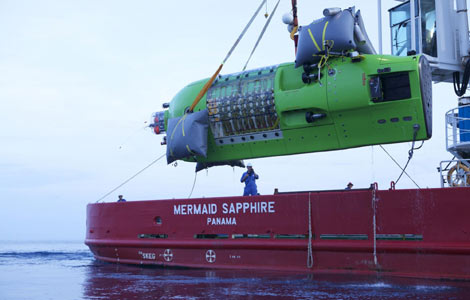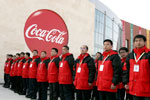Beijing drafts China's toughest emission standards
Updated: 2012-03-26 11:19
By Xu Xiao (China Daily)
|
|||||||||||
Stricter auto emission standards are likely to be adopted this year in the capital city as pollution in Beijing continues to cause concern.
A draft plan by the Beijing Environmental Protection Bureau under public review until April 9 calls for the city to lead the way with tougher standards.
"The Beijing V standard is equivalent to the Euro V standard," said a professor at the Environmental School of Tsinghua University.
The standard calls for lower nitrogen oxide, carbon monoxide and hydrocarbon emissions.
Nitrogen oxide emissions would be limited to 0.06 grams, down from the 0.08 grams in the national IV standard, while particulate matter emissions are limited to less than 0.0045 grams per km.
It also requires cleaner emissions as vehicles get older, upping the compliance limit to vehicles with 160,000 km on the odometer compared to 100,000 km in the national IV standard.
Though Beijing has been the pacesetter in implementing increasingly tough emission standards over the past decade, total tailpipe emissions in the city have continued to rise by more than 10 percent annually.
Zeng Zhiling, director of LMC Automotive Asia Pacific Forecasting, told China Daily that the Beijing V standard may put pressure on automakers because they would be forced to make models that meet separate standards - one for the Beijing market and another for the rest of the country for the national IV standard.
"It will cost an automaker more than 10,000 yuan to upgrade an engine to meet the Beijing V standard," China Automotive Business News cited an industry insider as saying.
But many automakers told the media that they began preparing to meet the new standard after receiving notice of the draft regulation.
A source at Shanghai GM's technology and engineering department said the company has already finished modifying its engine designs. When the new standard is officially implemented, the company will be able to supply models to meet the new standard right away, it said.
Li Yunfei, an executive at domestic automaker BYD, told reporters that the company was also prepared for the change.
Besides engine improvements, fuel quality is also key to lowering vehicle pollution, industry insiders say.
Chinese-language media reported that the country's fuel suppliers have already developed gasoline and diesel fuel that meets engine requirements in the Beijing V standard.
But the new standard will have almost no impact on vehicle sales in Beijing this year, Zeng from LMC said.
"The biggest impact on Beijing's automotive market is from the license plate registration policy started at the end of 2010. The market took the most serious hit last year," he said.
xuxiao@chinadaily.com.cn








